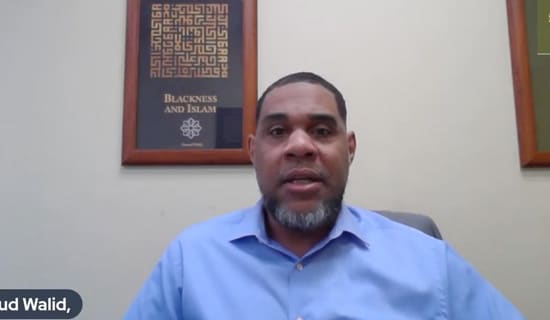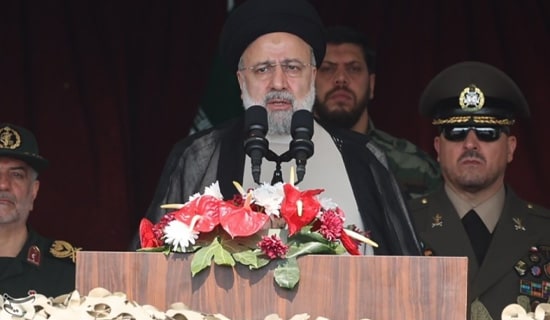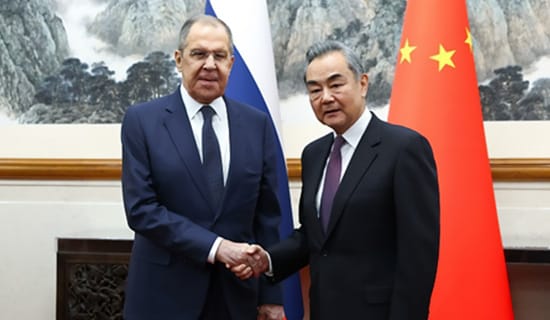Introduction
A seminar on "Islam and Reform" was held on October 5-6 at the Pyramisa Hotel in Cairo, with the participation of more than twenty intellectuals and researchers from the Arab and Muslim world, Europe, and America. At the seminar's conclusion, the participants published a final statement in which they called for the implementation of both religious and political reforms. The seminar and its final statement raised the ire of high-ranking clerics in the Egyptian religious establishment.
The Seminar's Discussions
The seminar focused on three main issues: parameters for reform in Islam; the possibility of Islamist groups' participation in democratic regimes; and the relations between American foreign policy and nascent pro-democracy groups in the Muslim world. [1]
In the opening speech Dr. Sa'ad Al-Din Ibrahim, Chairman of the Ibn Khaldun Center For Development Studies in Cairo, said that the plans for reform "aspire to emphasize that the gates of ijtihad [2] are wide open and that an [intellectual] Jihad must be waged to keep them open until Judgment Day, as the meaning of this [keeping the gates of ijtihad open] is the protection of freedom of thought and expression, not only in religious matters but in all matters…
Dr. Ibrahim further stated, "We are all [waging intellectual] Jihad to prevent the marginalization of the Muslim mujtahidun, whether marginalization by their own governments, by official religious institutions, which have become church-like institutions, or by extremists, radicals, and zealots who have hijacked Islam and turned it into a means of intimidation and terror all over the world." [3]
The Seminar's Recommendations
The participants published a final statement, signed by a number of leading progressives in the Arab and Muslim world: Dr. Sa'ad Al-Din Ibrahim, Chairman of the Ibn Khaldun Center in Cairo; Egyptian intellectual Gamal Al-Bana; Egyptian intellectual Dr. Sayed Al-Qimny; Syrian intellectual Dr. Muhammad Sharour ; Dr. Radhwan Masmoudi, Executive Director of the Center for Islam and Democracy in the U.S.; Dr. Najah Kadhim, Director of the International Forum for Islamic Dialogue, London; Sherifa Macarandas, President of the Mindanao Women's League – Phillipines; Tunisian intellectual Salah Al-Din Al-Jurshi; Dr. Abd Al-Hamid Al-Ansari, former head of the Faculty of Shari'a Law, Qatar University; Dr. Fabyola Badawy, head of the European Arabian Union for Democracy and Dialogue in France; and Abdallah Ali Sabri, Editor-in-Chief of the Yemenite Saut Al-Shura newspaper.
The final statement contained ten key recommendations, published (in English) on the Internet site http://www.mengos.net/events/04newsevents/egypt/october/ibnkhaldun-English.htm:
"1- Reframing a new intellectual Islamic context, characterized by clarity and unity of perception, that seeks to take into account all the changes and transformations that took place in the social life of the various countries of the Muslim world during the last 11 centuries.
"2- Implementing a radical revision of the Islamic heritage that involves all Islamic scholarship relating to Islamic Jurisprudence and the Sunna, the Traditions of the Prophet – all of which were founded during the first three centuries of Islam. The participants called for reliance on the Koranic text as the sole authentic source to be utilized for reviewing the entire Islamic heritage.
"3-Confronting all institutions – whether composed of clerics or lay persons – that claim a monopoly over religion and the proper interpretation of its holy text. Instead, a new spirit should seek to establish the right of ijtihad for all, under the banner of an Islamic reformation relevant to in the current century.
"4- Confronting and refuting the visions and statements of radical religious movements so as to retard their penetration into the Arab society specifically among youngsters many of whom are living in a state of depression under the stress of economic hardship.
"5- Intensifying dialogue with moderate and enlightened elements in the Western world, particularly in the United States. In this the language of dialogue and partnership is the instrument for dealing with the other "non-Muslims" on the basis of the principles of co-operation, respect of national independence, and peaceful co-existence among civilizations and nations. In that context, Muslim communities abroad could function as channels of contact.
"6- Despite some initial controversy in regard to reform priorities, the consensus stressed the need for implementing both political and religious reform simultaneously in order to attain comprehensive reform.
"7- Emphasis was placed on the importance of incorporating moderate Islamic movements in the democratic process; thus enabling those movements that accept democracy as a strategic option and recognize and respect the major principles and values of a liberal democratic civil society in a modern state to practice their political role freely.
SUPPORT OUR WORK

"8- To that end, and in [order] to reach a common agenda for reform in the Arab world, the participants strongly recommended initiating wide-ranging in-depth dialogues with the leaders of all peaceful Islamic movements.
"9- In order to maximize the benefits from the workshop, all the papers presented and the discussions that took place will be compiled and published in both Arabic and English.
"10- Both the workshop and the participants will be considered a key nucleus for establishing a new network for reformers in both the Arab and the Islamic worlds who will be regularly invited twice a year to follow up on the implementation of the workshop's recommendations as embodied in this, its Final Declaration. It is agreed also that participants could also recommend persons interested in the issue of Islamic reformation to join the network.
"Addendum: Representatives of seven different civil society organizations, operating in Egypt, called for establishing a new movement called 'Islamic Democrats' and invited those who accept their visions and discourse to participate in the movement which will take [the] Ibn Khaldun Center for Development Studies as a temporary premise."
High-Ranking Clerics in the Egyptian Religious Establishment Attack the Seminar and its Participants
The seminar and its recommendations raised the ire of high-ranking members of the religious establishment in Egypt. The Sheikh of Al-Azhar, Muhammad Sayyed Tantawi, harshly attacked the seminar and its participants, and claimed that their call "to confront all institutions that claim a monopoly over religion" was directed against Al-Azhar.
In an interview with the Kuwaiti daily Al-Rai Al-Aam, Tantawi claimed that voices in the seminar "called explicitly for the disavowal of the Prophet's sunna ; Al-Azhar and [Egyptian] society reject this." According to Tantawi, these research centers whose representatives participated in the seminar "have a destructive influence on Egyptian society and they must be stopped and brought to trial…This is an explicit call to discard a major source of Islamic religious law – the Prophet's sunna. This is a danger in which some of [our] external enemies are interested [in promoting]."
He further said, "The participation of Western [research] centers in a discussion of Islam and its legal sources is a mark of shame and a disaster which society and its leaders need to prevent… It is an obligation to forcefully intercede so as to prevent [these] affronts. This is a group of [religious] deviants, one of whom has already been indicted on charges of treason; thus it is forbidden to deal with them and it is an obligation to consider them insignificant in society." [4]
Sheikh Ibrahim Al-Fayoumi, Secretary-General of "The Academy for Islamic Research," the supreme body of Al-Azhar, said: "I called for the holding of an emergency session to respond to this impudence… What causes foreign [research] centers to express their opinion on Islam? Would they agree to us intervening in matters of their religion and faith…? [This is] a religious war led by Zionist organizations to harm Islam and its law… We will demand to put an end to the holding of these conferences which attack faith." [5]
Dr. Abd Al-Azim Al-Mut'ani, Al-Azhar University lecturer, said: "Conferences such as these aspire only to cater to the American overlord, and they have no intention of [pursuing] reforms in the Arab and Muslim worlds. These are agencies operated by the U.S. to justify its intervention in and pressures on Islamic governments." [6]
The Ibn Khaldun Center's Response
On October 10 the Ibn Khaldun Center published a statement in response to Sheikh of Al-Azhar's accusations. The statement read: "Sheikh Al-Azhar says that ' the participation of Western [research] centers in the conference is a mark of shame and a disaster which society and its leaders need to prevent.' We ask: does Sheikh Al-Azhar believe that a particular group of people holds a monopoly on ijtihad and that this group does not include Western individuals? [If so,] what are we [Muslims] doing in departments for Islamic Studies in Western universities? Should we demand to dismantle [these departments], since they lack authority [to deal with these subjects]? Are we opposed to dialogue with these Westerners because they have no authority to speak about Islam? We would be happy to remind Sheikh Al-Azhar that Islam is a universal message to all people, that ijtihad is an Islamic duty, and that the gates of ijtihad are open to all and no one has the right to close [them] or to monopolize it…
"Sheikh Al-Azhar said: ' The conference's recommendation to rely on the Koranic text as the sole source of judicial authority is an explicit call to discard a major source of Islamic religious law – the Prophet's sunna.' In response we demand that Sheikh Al-Azhar read with scrutiny the conference's final statement, and he will find that we are not looking to disavow the Prophet's sunna, but only to base ourselves on the unadulterated Koran…as the sole judicial source [of authority] - that is to say, to rule according to the Koran in the event of disagreement. This is an explicit Koranic injunction…: 'Should I seek a judge other than Allah when it is He who has revealed the Book for you with all its precepts?' [Koran 6:114]
"Does Sheikh Al-Azhar disagree with us on this matter? Does he possess an alternative source of judicial authority to which one may turn in the event of disagreement? Is Sheikh Al-Azhar unaware of the fact that many traditions and commentaries are of doubtful authenticity, and that many of them are responsible for the blaming of Islam [as the cause of] violence, terrorism, and inflexibility? If he knows it - and he certainly does – then it is his supreme obligation, based on the Al-Azhar Law, to conduct ijtihad in order to reveal the truths of Islam and to cleanse it of the lies and distortions which compromise it.
"Sheikh Al-Azhar said: 'this is a group of [religious] deviants, one of whom has already been indicted on charges of treason.' We regret that Sheikh Al-Azhar alluded to an indictment brought against Dr. Sa'ad Al-Din Ibrahim and the employees of the Ibn Khaldun Center, and we are happy to clarify the following facts:
"1. Dr. Sa'ad Al-Din Ibrahim was not charged with treason, but with other charges, fabricated by the Investigations [Department] of Egyptian State Security.
"2. The ruling of the highest court in Egypt declared Dr. Sa'ad Al-Din Ibrahim and the center's employees innocent of all the charges of which they had been accused. Moreover, [the court] implicitly criticized the inanity in the accusations against them. Does Sheikh Al-Azhar hold an opinion opposed to that of the Supreme Court? Does he believe that an indictment is a conviction?
"3. Does Sheikh Al-Azhar have the right to accuse a portion of the Muslim intellectuals of breaking off from Islam? Isn't this equivalent to accusing us of apostasy and [thus] putting our lives in danger? Were not similar accusations responsible for the murder of Farag Fouda and the attempted murder of the internationally renowned author Naguib Mahfouz? [7] We call on Al-Azhar not to descend to the path of takfir [accusation of apostasy], which is a means employed by groups [characterized by] violence and extremism…" [8]
* Y. Yehoshua is Director of Research at MEMRI.
[1] http://www.mengos.net/events/04newsevents/egypt/october/ibnkhaldun-English.htm.
[2] " Ijtihad " is the exercise of independent judicial ruling based on primary sources in Islamic law; this as opposed to " taklid," or reliance on and imitation of judicial precedent.
[3] Al-Rai Al-Aam (Kuwait), October 6, 2004.
[4] Al-Rai Al-Aam (Kuwait), October 8, 2004.
[5] Al-Rai Al-Aam (Kuwait), October 8, 2004.
[6] Al-Watan (Saudi Arabia), October 9, 2004.
[7] The Egyptian intellectual Farag Fouda was murdered in 1992 after some Islamists declared him to be an apostate. In 1994 Muslim extremists attempted to murder the author Naguib Mahfouz following the publication of his book Children of the Alley.




